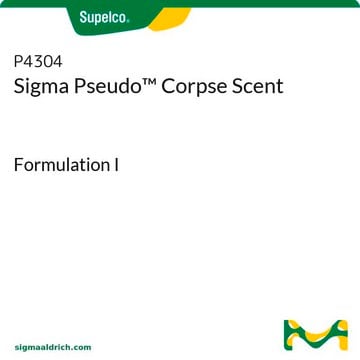89050
Thiosemicarbazide
puriss. p.a., 98%
Synonym(s):
Thiocarbamoyl hydrazide
About This Item
Recommended Products
grade
puriss. p.a.
Quality Level
Assay
98%
form
crystals
ign. residue
≤0.08% (as SO4)
mp
180-183 °C (dec.) (lit.)
anion traces
sulfate (SO42-): ≤100 mg/kg
cation traces
Ca: ≤50 mg/kg
Cd: ≤5 mg/kg
Co: ≤5 mg/kg
Cr: ≤5 mg/kg
Cu: ≤5 mg/kg
K: ≤50 mg/kg
Mg: ≤5 mg/kg
Mn: ≤5 mg/kg
Na: ≤50 mg/kg
Ni: ≤5 mg/kg
Pb: ≤5 mg/kg
Zn: ≤5 mg/kg
SMILES string
NNC(N)=S
InChI
1S/CH5N3S/c2-1(5)4-3/h3H2,(H3,2,4,5)
InChI key
BRWIZMBXBAOCCF-UHFFFAOYSA-N
Looking for similar products? Visit Product Comparison Guide
General description
Application
Signal Word
Danger
Hazard Statements
Precautionary Statements
Hazard Classifications
Acute Tox. 2 Oral - Aquatic Chronic 3
Storage Class Code
6.1A - Combustible acute toxic Cat. 1 and 2 / very toxic hazardous materials
WGK
WGK 3
Flash Point(F)
Not applicable
Flash Point(C)
Not applicable
Personal Protective Equipment
Choose from one of the most recent versions:
Already Own This Product?
Find documentation for the products that you have recently purchased in the Document Library.
Customers Also Viewed
Our team of scientists has experience in all areas of research including Life Science, Material Science, Chemical Synthesis, Chromatography, Analytical and many others.
Contact Technical Service













